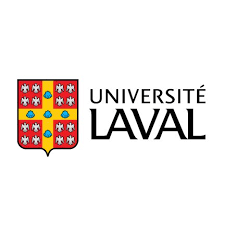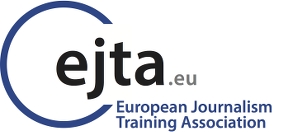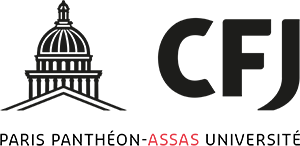International partnerships
Introduction
Crossborder Journalism Campus
The Crossborder Journalism Campus or CJC is a pioneering journalism education model, launched in 2022, where we allow students from the CFJ and two other journalism schools (Gothenburg University and Leipzig University) to collaborate across borders. It simulates a real life crossborder investigative process from idea to publication, accompanied by experienced practitioners and journalism lecturers in the field. The goal is to prepare an investigative journalism production ready for publication at the end of the programme.
Two other universities (with journalism educations) bring in academic expertise: University of Amsterdam and OsloMet ; and the Arena for Journalism in Europe organisation ensures the connection to the professional community and contributing to the education.
The Crossborder Journalism Campus is integrated into the Master in Journalism programme in Paris or Lyon and allows to practice the specialisation in a close-to-reality set-up.
The Crossborder Journalism Campus is a three year Erasmus+ project involving two pilot classes, the first in the academic year 2022/23, the second in the academic year 2023/24. A large part of the funding covers the travel and accomodation for the students from three partner universities to meet. The educational and editorial decision making is not influenced by the funding, it lies in the responsibility of the project partners entirely. The Erasmus+ supported programme allows to develop a genuinely networked education programme with two pilot classes, one in 2022-23 and a second one in 2023-24.
Laval University (Canada)
Laval University in Quebec (Canada) renewed their partnership with the CFJ in 2018, allowing students from both establishments to complete part of their degree programme abroad.
Learn more about Laval University

Google News Lab University Network
The CFJ has been a member of the Google News Lab University Network since it was launched in December 2016, alongside 40 other journalism schools from around the world. This network allows the CFJ to work with tools designed and prototyped by Google to facilitate the work of journalists, guarantee the most reliable information to web users and deliver new formats in terms of fact checking, data journalism and mapmaking. It is within this context that the CFJ also has a partnership with First Draft News, an international NGO which combats fake news and shares the most effective fact-checking tools on line.

EJTA
The European Journalism Training Association (EJTA) was established in Brussels in 1990. It groups together about 70 journalism centres, schools and universities from about 30 countries across Europe. They work together to improve journalism education in Europe, enabling members to collaborate on exchanges and teaching and research projects, and meet regularly to exchange ideas and information. The most important aim of the association is to stimulate European co-operation in journalism education and mid-career training between non-profit training centres, and to develop a professional approach towards journalism training.
The Association:
- organizes conferences and seminars to encourage discussion about the important questions of the journalistic profession and its training problems,
- stimulates long and medium-term exchanges of students and lecturers,
- organizes research at a European level on important issues in journalism training,
- represents its members and defends their interests in contacts with institutional partners, such as the European Commission, UNESCO, and associations of journalists and editors,
- arranges common practical exercises and common international programmes and projects
With financial support from the European Commission the EJTA was able to initiate and supervise the following pieces of research:
- 1994: Rights and obligations of journalists in Europe
- 1995: New technologies in European journalism training
- 1997: Curriculum development in European journalism
- 1998: Local and Regional Journalism
- 2006: The Tartu Declaration
- 2008-9 Competences project
The EJTA focuses on the Bologna Declaration and its implementation in journalism training.

Cumulus
Cumulus is an international network of art, design and media colleges and universities comprising the world’s top 200 institutions. It is the only global association to serve art and design education and research. It is a forum for partnership and transfer of knowledge and best practices. Cumulus consists currently of 286 members from 57 countries.

Le média de la 77e qui vous plonge au cœur des Pays-Bas
L'EUROPE A PERTE DE VUELe dossier spécial de la majeure newsroom de la 77e
MOULALe média éphémère sur Instagram de la 76e promo Local/Global
LUNDI DE L'INALe « Lundi de l’Ina » dédié à la protection des océans, organisé par la 77e et l’Ina
POLSKALe magazine de la 77e promo à Varsovie
WL'école post-bac
 |
Établissement d’enseignement supérieur privé 210 Rue du Faubourg Saint-Antoine 75012 Paris 01 44 09 42 02 |

210 Rue du Faubourg Saint-Antoine
75012 Paris
01 44 09 42 02
.svg) |
Nous trouver |
